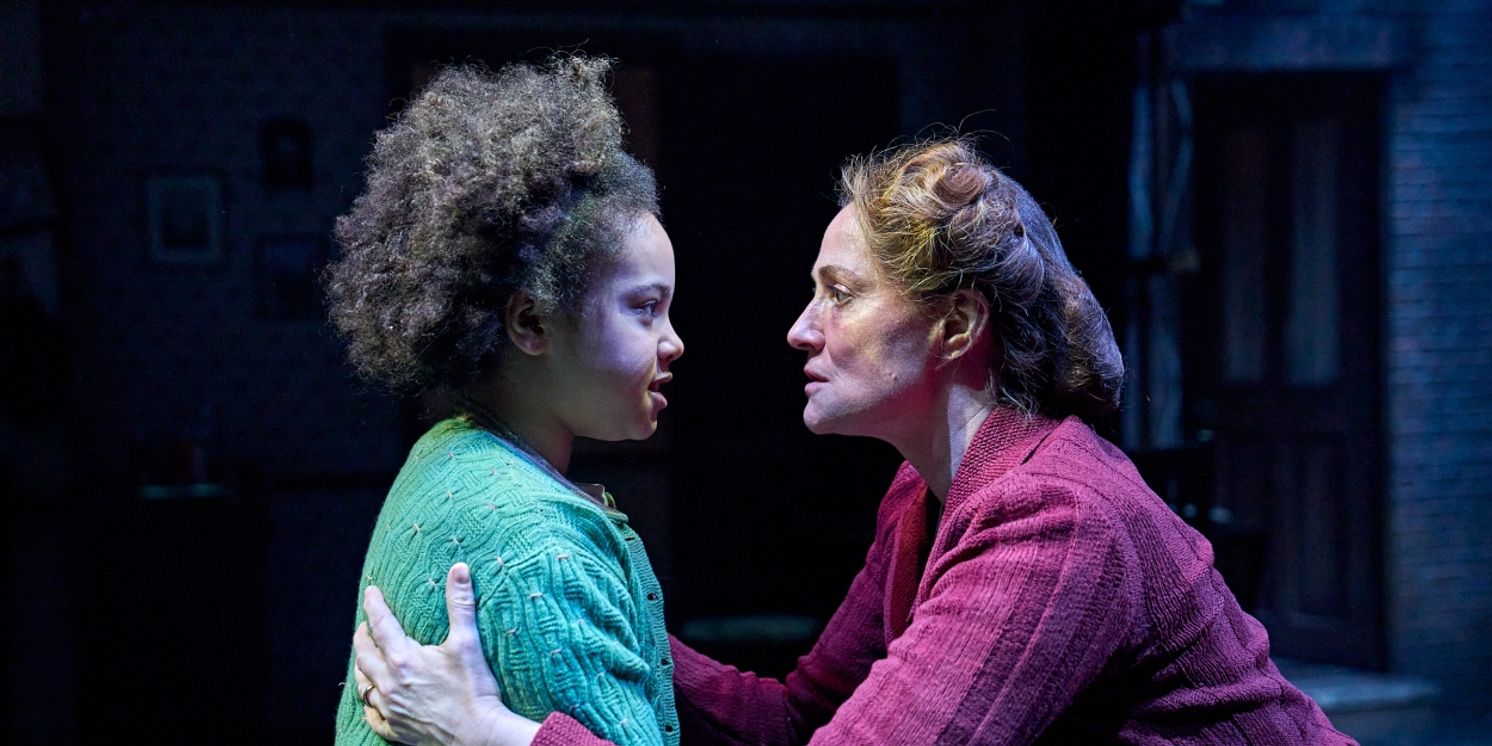Review: TROUBLE IN BUTETOWN, Donmar Warehouse
A racially charged tale of love and strife in 1940s Cardiff.

![]() Diana Nneka Atuona's Liberian Girl was a hit at the Royal Court in 2015. In her second play, she shifts away from the African continent to 1940s Cardiff for her second play Trouble In Butetown.
Diana Nneka Atuona's Liberian Girl was a hit at the Royal Court in 2015. In her second play, she shifts away from the African continent to 1940s Cardiff for her second play Trouble In Butetown.
Gwyneth (Sarah Parish) manages an unofficial boarding house in the Tiger Bay area of the capital with her two daughters Connie (Rita Bernard Shaw) and Georgina (Rosie Ekenna) and lodgers Dullah (Zaqi Ismail), Norman (Zephryn Taitte) and Patsy (Ifan Huw Dafydd) for company. The US Army has set up barracks in the area and banned black GIs from going into Butetown, something the locals turn a blind eye to. On the eve of St David's Day, a bruised and bloody soldier called Nate (Samuel Adewunmi) hides outside Gwyneth's house on the run from the Military Police.
With its two-hour plus running time, this work has plenty of opportunity to explore many social issues which are as prevalent and redolent today as they were then. Gwyneth's choice to marry a Nigerian man and to host Welsh, African and Asian shipworkers in her house might seem progressive for the time but Butetown has always been a racially mixed town; by the beginning of the First World War, people from over fifty countries had settled there with large communities of Somalis, Yeminis and Greeks.
Peter McKintosh's effective set design (together with his costume design and Carole Hancock's excellent wigs, hair and make up) brings us immediately into this multicultural time and place and his creative use of space cleverly separates the warm and cosy living room space of the boarding house from the outside areas without the need for clunky walls.
The Peckham-born Atuona has a keen ear for accents and dialects and uses them superbly to enliven the back and forth between this diverse blend of characters as they bounce off each other and, when he appears, Nate. Trouble is at its best when focusing on the personal relationships in this household: Connie battles against her mother's suffocating ways, the pragmatic Patsy sees Nate as a threat to Gwyneth and her family while Dullah is torn between returning home to an arranged marriage and settling down with Connie's bestie Peggy. At the heart of all of this is the very young and utterly endearing Georgie, waiting for a father who is unlikely to return.
The two romances are given polar opposite treatments. Connie and Nate come together naturally; their nocturnal rooftop talk is a highpoint of this play and there is a genuine sadness when they realise they are better apart. In contrast, the love affair between Dullah and Peggy feels more of a tacked-on afterthought that adds nothing to the overall plot other than giving the least two interesting members of this informal coterie something to chew on.
The trouble with Trouble is not in its inviting setup but what Atuona and director Tinuke Craig do with it. The early scenes drag until Nate introduces himself to Georgie and composer Clement Ishmael's songs are a welcome tonic to plodding dialogue that could have been ripped from the average kitchen sink drama.
Atuona does well to pepper the play with cheeky humour but, despite its meaty length, there are too many characters and too little plot points. Apart from Gwyneth, Nate and Connie, the rest are generally portrayed with the thinness of tinned leek soup while the storylines are predictable and pedestrian. In a season where the Vaults Festival is showing what can be achieved with hour-long dramas, this sophomore effort from Atuona in its current form feels underwritten and lacking in punch.
Trouble In Butetown continues until 25 March.
Photo Credit: Manuel Harlan
Reader Reviews
Powered by
|
Videos

